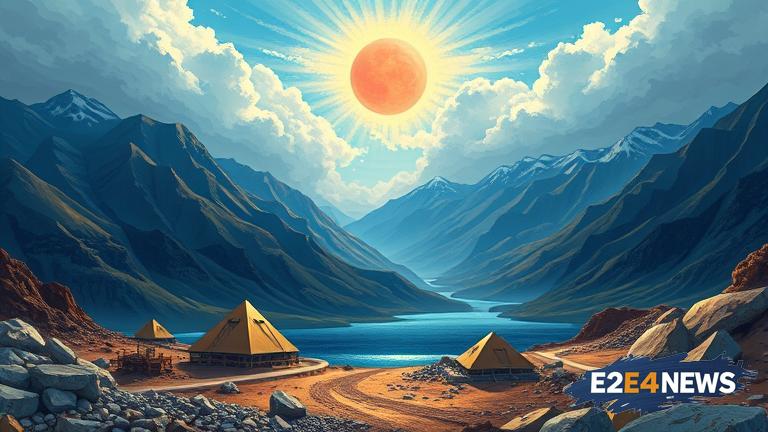The Quad alliance, comprising India, Japan, Australia, and the United States, has been deemed essential for ensuring a stable supply of critical minerals to India and Japan. The Ministry of External Affairs (MEA) has emphasized the significance of this alliance in securing the necessary resources for the two nations’ economic growth. Critical minerals, such as lithium, cobalt, and rare earth elements, are crucial for the production of advanced technologies, including renewable energy systems, electronics, and electric vehicles. The MEA has highlighted the importance of diversifying the supply chain for these minerals to reduce dependence on any single country. India and Japan have been actively engaging with their Quad partners to explore opportunities for cooperation in the critical minerals sector. The alliance is expected to facilitate the sharing of best practices, technology, and expertise in the exploration, production, and processing of critical minerals. This collaboration will enable India and Japan to enhance their domestic capabilities and reduce their reliance on imports. The MEA has also underscored the need for responsible and sustainable mining practices to ensure that the extraction of critical minerals does not harm the environment or local communities. The Quad alliance has been working to promote transparency and accountability in the critical minerals supply chain. India and Japan have been keen to develop their own critical minerals industries, with the Indian government launching initiatives to promote domestic production and exploration. Japan has also been actively investing in critical minerals projects around the world. The Quad alliance has provided a platform for India and Japan to engage with like-minded countries and address common challenges in the critical minerals sector. The MEA has emphasized that the alliance is not aimed at creating a new bloc or excluding any country, but rather at promoting cooperation and collaboration among like-minded nations. The critical minerals sector is expected to play a vital role in the transition to a low-carbon economy, and the Quad alliance is poised to play a key role in shaping the global landscape for these resources. The MEA has highlighted the potential for India and Japan to emerge as major players in the critical minerals sector, with the Quad alliance providing a framework for cooperation and collaboration. The alliance is also expected to promote innovation and research in the critical minerals sector, with a focus on developing new technologies and processes for the extraction and processing of these resources. Furthermore, the Quad alliance is likely to enhance the security and resilience of the critical minerals supply chain, reducing the risk of disruptions and promoting stability in the global market. In addition, the alliance is expected to promote economic growth and development in India and Japan, by providing access to critical minerals and supporting the development of domestic industries. The MEA has emphasized the importance of the Quad alliance in promoting a free and open Indo-Pacific region, where countries can cooperate and collaborate on issues of common interest. The critical minerals sector is just one area where the Quad alliance is expected to make a significant impact, with the potential for cooperation and collaboration in other areas, such as renewable energy, cybersecurity, and counter-terrorism. Overall, the Quad alliance is poised to play a vital role in shaping the global landscape for critical minerals, and promoting cooperation and collaboration among like-minded nations. The MEA has highlighted the significance of this alliance for India and Japan’s economic growth and development, and the potential for the two nations to emerge as major players in the critical minerals sector.
